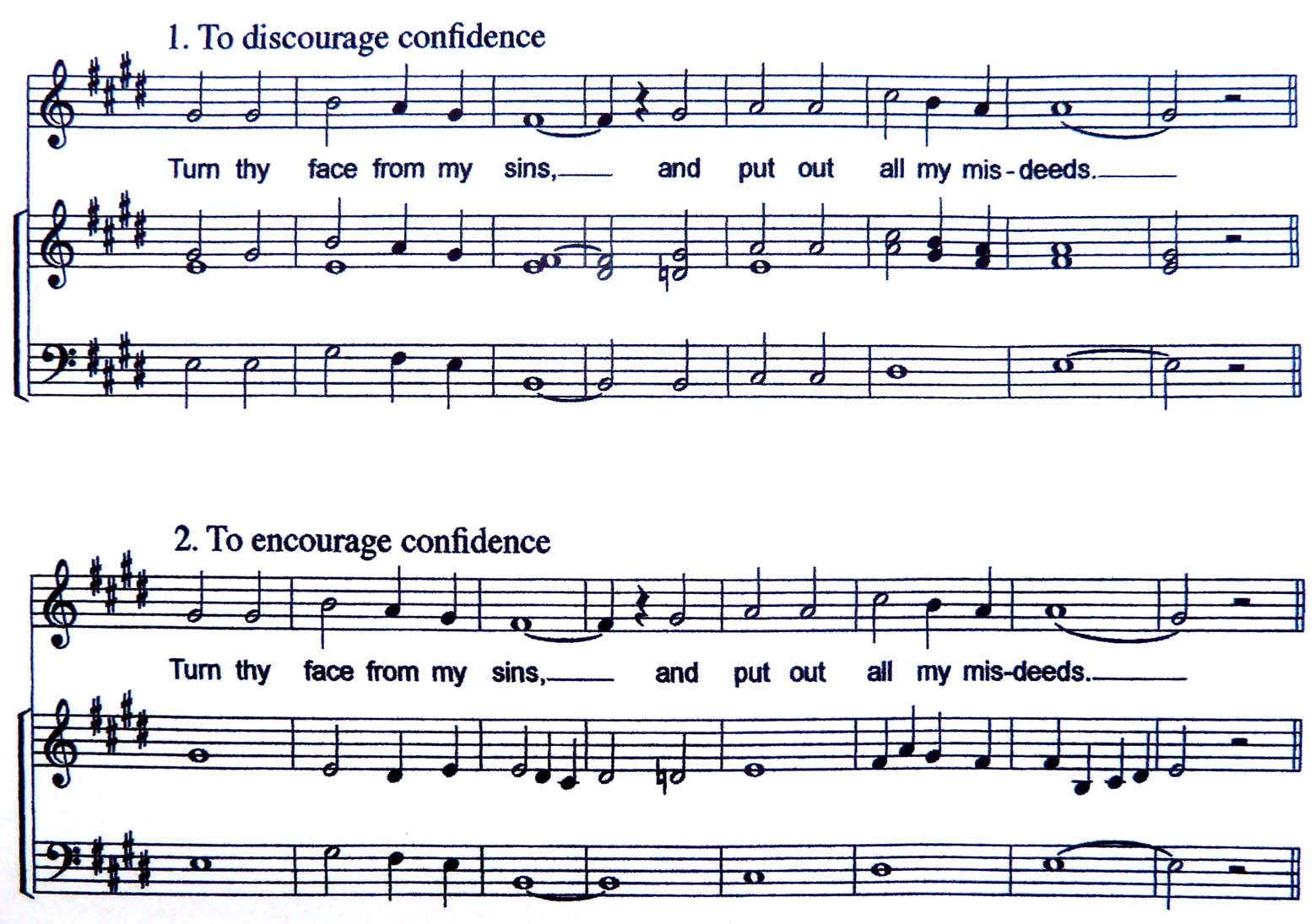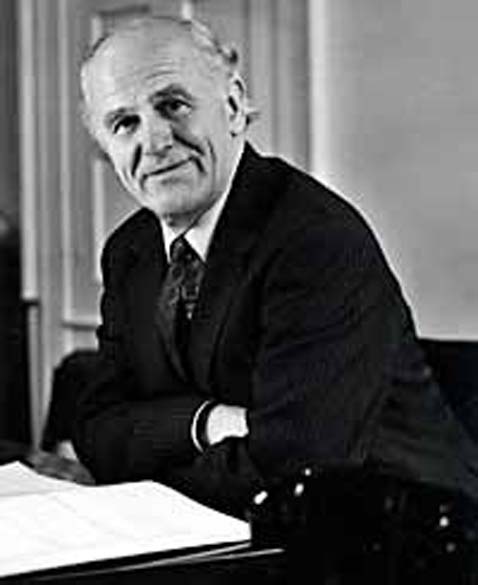How to transform your choir
and fill your stalls
with enthusiastic singers
23 TO ENCOURAGE YOUR CHORISTERS’ CONFIDENCE

by Dr John Bertalot
Organist Emeritus, St. Matthew's Church, Northampton
Cathedral Organist Emeritus, Blackburn Cathedral
Director of Music Emeritus, Trinity Episcopal Church, Princeton, NJ, USA
Sometimes choirmasters tell me that their young choristers can’t sing on their own without the choirmaster’s help. ‘They don’t seem to have any confidence,’ say their conductors.
I can tell you exactly why this is and how very easy it is to cure it. Read on if you’re willing to try something new.
There’s only one reason why children (and adults) can’t sing on their own: it’s because that’s the way they’ve been rehearsed.
For example, some years ago when I was leading choral workshops in South Africa I watched a children’s choir being rehearsed by a talented lady. But she always sang with them – they were never left to sing on their own. When I mentioned this to her afterwards she said, ‘I thought that singing with the children would help to boost their confidence. That way they’d learn the tunes really well so that they can sing them confidently in performance.’
But, of course, that’s exactly what she wasn’t preparing them to do. She wasn’t preparing them to sing on their own in a performance; she was preparing them to sing in a performance only with her help. When it came to the performance they were help-less, for the help they were used to wasn’t there.
Now I’m sure that many leaders of children’s choirs wouldn’t dream of singing along with their children ‘to help them sing well’, (although, alas, I know several who do!).
But those conductors who don’t sing with their children do something equally unhelpful – and they don’t realize that they’re doing it. What is it that they do? They play ‘the tune’ on the piano during rehearsals. And so the children are not allowed to show any form of leadership because the choirmaster is doing all the work for them. And, what is worse, the choirmaster is almost always playing so loudly that he – or she – can’t hear what the children are doing. And if choirmasters can’t hear what their choristers are doing, they’re not doing their job effectively.
Slight pause for choirmasters who are reading this article to ask themselves:
1: ‘Do my choristers lack confidence in services or concerts?
2: Could it be because I always play the tune with them for rehearsals?
3: How loudly do I play the piano?’
Look at these two examples from the beginning of Attwood’s Turn thy face. The first is how it’s usually accompanied.
The second is how you can still accompany but, at the same time, give the responsibility of singing 'the tune' to your choristers.

Leaving out the treble part when you’re playing the piano applies to anthems as well as to hymns, psalms and warming-up exercises. It’s a hard saying, but whenever I’ve attended rehearsals of children’s choirs – be they school or church or even cathedrals – their choirmasters nearly always
(i) play the tune, and
(ii) are so intent upon playing the piano that their full attention cannot be on their choristers.
Ask yourself the question: ‘Who’s working harder, my singers or me?’ You know what the answer should be.
And that’s my next question:
Is your full attention on your choristers during rehearsals? For if it isn’t you’re not enabling your singers to give of their best. You may say, ‘I’ve got to play the piano for rehearsals, for there’s no-one else to do it.’ Yes – but you don’t have to play the piano all the time.
My next question:
When did you last get up from behind your piano and actually stand in front of your choristers whilst they were singing?
I know that this is a difficult thing to do, for I find that when I’m leading rehearsals with my own parish church choir I sometimes realize that I’ve been sitting (comfortably) behind the piano for 15 minutes whilst the choir has been rehearsing. And so, almost literally, I have to force myself to walk away from my comfort zone to look my singers in the face.
What good does that do?
1: Because the piano isn’t ‘helping’ them, for they should take responsibility for their own singing.
2: When you, their leader, stand physically more close to them they will immediately try harder. This applies to adult singers as well as to children.
When I was living in the USA I saw Sir David Willcocks lead a rehearsal for 150 adults.

I was there to watch him for I was about to lead the country’s annual RSCM course at Princeton University which would be attended by 200 children, adults, choirmasters and organists, and so I needed a musical boost which I knew Sir David would give me. His singers were sitting on chairs which were in a semicircle – about 8 rows deep; so I sat in the back row with pad and pencil and began to take notes.
Suddenly, in the middle of an anthem, Sir David ploughed his way through half a dozen rows to talk to the basses in the back two rows. What an effect that had!
I immediately sat up straight (i.e. I ‘tried harder’) for I realised that I was vulnerable!
That taught me a lesson I shall always remember. When you lead a rehearsal so that you are sometimes face to face with your singers, they will immediately try harder for you. You are leaving your comfort zone and entering theirs. We all want our singers to try harder and that’s a sure way of ensuring that they do.
And so I come back to what I’ve seen when I’ve attended some rehearsals in the UK, the USA and elsewhere: very rarely have I seen choirmasters get up from the piano to walk amongst their singers whilst they are singing. Surely your choir can sing a verse of a hymn without you playing it with them?
Alas, I’ve seen even professional choirs being rehearsed whilst hymns are played with them. They don’t need it, and, what’s worse, you, the choirmaster, are taking the responsibility for leading the singing of that hymn – you’re taking it away from your singers, and that’s why they don’t sing confidently. You may say, ‘I’m showing them how I want it sung.’ OK, show them for the first verse but, having shown them, see if they can do what you want whilst they are singing the second verse unaccompanied.
But may I go further?
I recently watched a semiprofessional choir being rehearsed by one of the UK's leading choirmasters for whom I have the highest regard. I was there to take notes again. But the first sentence I wrote was, ‘He doesn’t have their total attention, and he doesn’t know it!’ But because he was such a distinguished musician and because he was their guest conductor he naturally assumed that, when he spoke, everyone would listen. But they didn’t. Why? Because he didn’t look everyone in the eye before he began, to ensure that their ears were open and their minds were really focused on him.
Because you’re working so hard leading your rehearsal from the piano, you may assume that your singers are working equally hard. They’re not! They see you slaving away but they’re thinking, ‘If he wants to work that hard, that’s OK by us!’ And as they’re not challenged to lead during rehearsals (because you are doing all the leading), they’re unable to lead during services.
When I was living in the USA I was invited to lead the music of one of the Crystal Cathedral in Los Angeles for a weekend whilst their conductor was away.

For the Thursday adult choir rehearsal, after being introduced, I said, ‘Hymn so-and-so: sing the first chord in harmony to Ah.’ The accompanist gave the chord and I brought them in. Half the choir sang the first chord to Ah, but the other half began singing the first verse. Clearly I had to say something to put things right – immediately.
I said, ‘Ladies and gentlemen, we have a lot of work to do tonight so it would be helpful if I gave instructions only once.’ That immediately got their attention and they all sat up straight!
But how could I fulfil this intention to give instructions only once when half of them hadn’t heard my first instruction? I turned to one of the sopranos who had sang the first note to Ah, and asked her, ‘What was it that I wanted the choir to do?’ And she told them! After that we had a superb rehearsal, for everyone, everyone, listened to every word I said! And I would be asked back the next time the director would be away. They had enjoyed my first visit because I had made them work really hard to achieve high standards – which was why they joined that choir in the first place. They were all terrific!
Does everyone listen to every word that you say when you are leading a rehearsal, or don’t you know? If you don’t know, then they’re not.
How much time do you spend looking at your copy in comparison with looking your singers in the eye? I’ve attended rehearsals in schools and elsewhere where some singers on the back rows were talking whilst the choirmaster was giving instructions, and others weren’t singing at all – and the choirmaster wasn’t aware of it! Once, I even saw two singers doing a crossword puzzle during a rehearsal.
‘My choir isn’t like that!’ you may protest. Are you sure?
© John Bertalot, Blackburn 2013